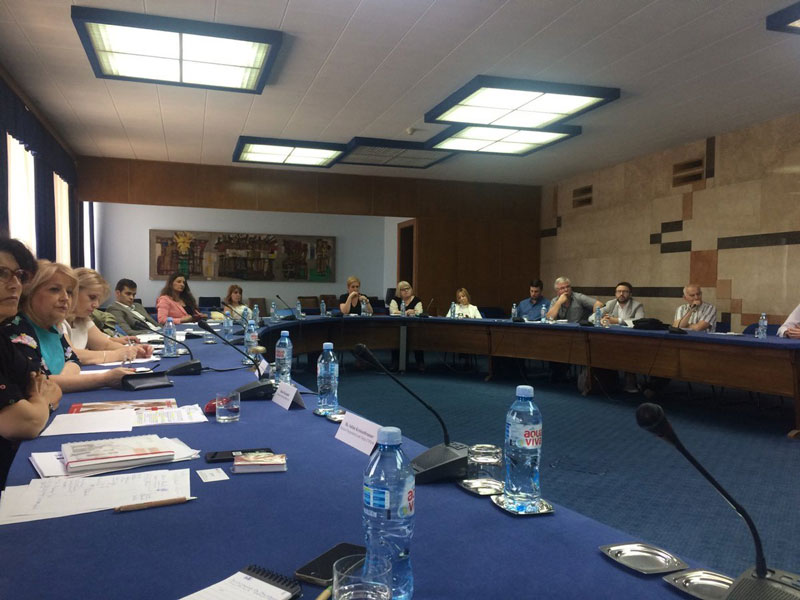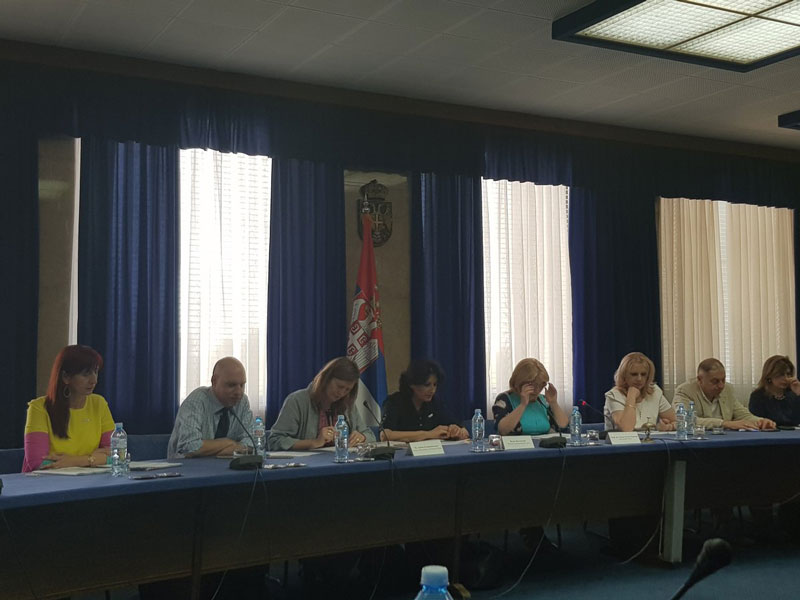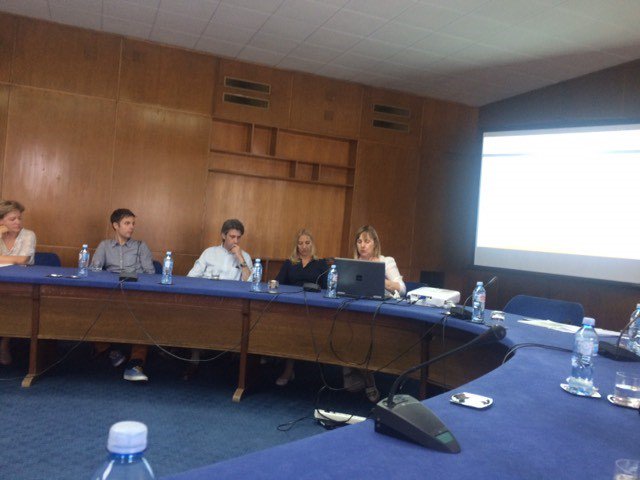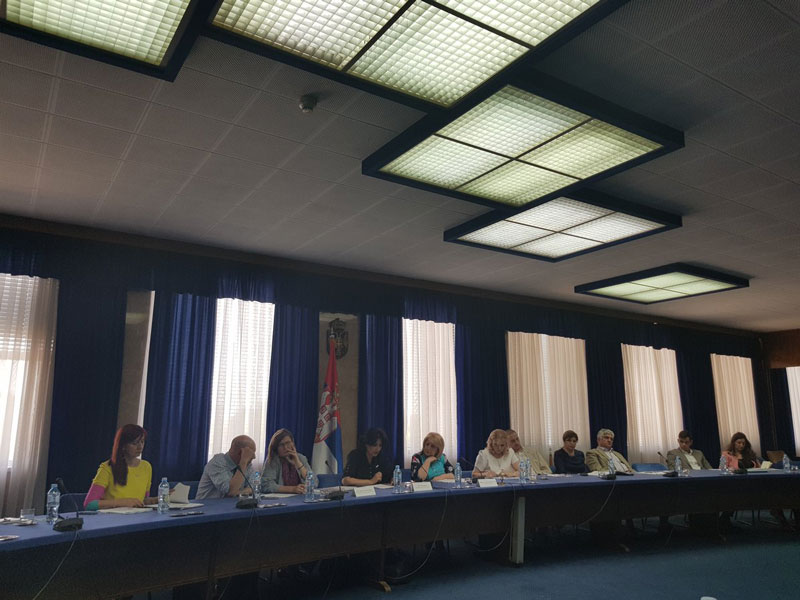Second session of the Republic of Serbia Government’s Council on Ageing
Second regular session of the Republic of Serbia Government’s Council on Ageing was held on Tuesday 30 May 2018 in The Palace of Serbia.
One of the topics on the session was the research on social inclusion of older people in Serbia conducted this year on behalf of the Red Cross of Serbia and HumanaS network by SeConS group. On behalf of the Red Cross of Serbia the session was attended by Ms. Vesna Milenovic, Secretary General of the Red Cross of Serbia, Ms. Natasa Todorovic, Health and Care Programme Manager in the Red Cross of Serbia and a regular member of the Council, as well as Dr Milutin Vracevic, Health and Care Programme Manager and coordinator of the Taking Action on Social Inclusion of Older People project, that the research was a part of.
The project, coordinated by the Red Cross of Serbia in five countries of the Western Balkans region is supported by European Union, Austrian Development Agency and Austrian Red Cross. Representing the Austrian Embassy in Serbia was Ms. Sabine Kroissenbrunner, Minister Plenipotentiary and Deputy Head of Mission of Austria to Serbia and the research was presented by prof. Dr Marija Babovic, Programme Director at SeConS. Ms. Danica Smic, Red Cross of Serbia volunteer and Mr. Gradimir Zajic, a retired sociologist and one of the founders of Network of Social Researchers were presenting good practice examples for social inclusion of older persons. The session was chaired by Minister without portfolio responsible for demographics and population policy, prof. Dr Slavica Djukic Dejanovic.
The research on social inclusion of older people in Serbia was done using publicly available statistical data and other publicly available data with attention paid to material living conditions, access to resources and services, social participation and networks, leisure, life styles, culture and communication, quality of life and subjective satisfaction. The methodology used included qualitative and quantitative approach.
Minister prof. Dr Slavica Djukic Dejanovic has, speaking about the fact that only 16% of people over 65 have no income whatsoever, pointed out that it is incorrect to generally consider older people a burden to their families since they actually use their experience to assist younger generations. She also highlighted that, according to the research, one of the population categories at the highest risk in health and social terms are older women living in Serbian rural areas.
Deputy Head of Mission of Austria to Serbia Ms. Sabine Kroissenbrunner pointed out the similarities between Austria and Serbia in relation to older population and talked about the challenges that demographic ageing poses to both societies.
Ms. Vesna Milenovic explained that 15% of people over 65 in Serbia are actively working, predominantly in agriculture, but also that the research showed the significance of pensions in protection from poverty – without pensions and social transfers 82.3% of older people in Serbia would be at poverty risk. She also talked about the barriers to accessing healthcare that many older people face, as well as financial abuse of older people that affects older women disproportionally.
Examples of good practice demonstrated by Ms. Danica Smic and Mr. Gradimir Zajic showed that volunteering not only contributes to better social inclusion of the active person but also to older people from the person’s immediate environment in becoming more active and socially included.




